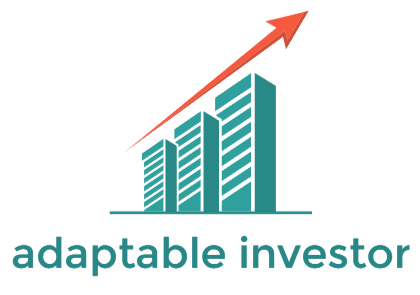By Shah Gilani, Shah Gilani – Total Wealth Research, 2024-07-17
The big banks have kicked off earnings season with a bang.
But is the sector’s stellar performance too good to be true?
In your latest “Buy This, Not That” video, I take a look at the earnings reports for six of the biggest U.S. banks.
While their headline numbers are impressive, with record highs and substantial profit increases, there’s something lurking under the surface… and I break down what it is.
Don’t be fooled by flashy headlines. See what’s really driving bank performances and whether the big banks are big buys

TRANSCRIPT
Hi, everybody. Shah Gilani here with your weekly BTNT, as in Buy This, Not That. I’m going to hit the big banks.
Why? Because their earnings are out. And it’s a tale of two cities, people. I’m going to pull up some charts. We’re going to take it from the top.
First up is the big boy. We know who that is. JPMorgan Chase (JPM). Largest bank in the United States.
Now here’s a chart of S&P 500. First thing before we get into the banks is take a look at the one-year chart. To the moon. And it is Tuesday as I’m recording this, and I’ll start off by saying the Dow surged to a new record today, and everything has been going up.
And now everybody is talking about the bull market that I started talking about last summer. This is a pretty fantastic chart. Okay? Straight up, a little dip in here. The only little opportunity you had to buy. Now the banks are enjoying the same kind of ride.
So let’s hit up JPMorgan Chase & Company. JPMorgan.
Not so bad. Trading at $213.62 on the close, Tuesday afternoon. Woo. Awfully nice move here.
Pretty nice-looking 52-week chart here. Now, as far as the biggest bank in the United States, profits were up 25% year-over-year. Fantastic. To $18.15 billion. Revenue was up 32%. Net income, up 27% over last year. Profit margin, however, was down one percentage point, to 38% from 39%, driven by higher expenses.
So, hmm, everything looked good until you get to the profit margin. Except there was a little bit of an issue that people didn’t seem to take in on the headline news. That the bulk of that, of those new revenues, of that 25% increase in profits, came from a one-time $7.9 billion gain from a swap of Visa stock.
Okay? So that’s not going to happen again. It’s a one-time gain. So the headline numbers look good.
The stocks had a nice move. Frankly, I’m unimpressed. Yes, I like the fact that they had a surge in investment banking fees. But here’s the cool thing to know when you look in between the numbers, when you read between the lines, great numbers.
Nice beautiful day today. Nice new high for JPM. Except, when you take out the one-time gain this quarter, the profits were actually down to $4.40 a share, versus a year ago when they made $4.75 a share. So this looks real good, people. You can buy JPMorgan Chase because it’s just a great bank. But be careful out there because this is one heck of a ride.
Just like the S&P, just like the Dow, just like the Nasdaq, I think things are getting just a little bit extended. And as far as JPM, I’m not overly impressed with those numbers. They were down year-over-year. So why all the bullishness?
So if you wanna go chase JPM, use a 11% stop. Or you know what? I’ll look around here. If JPM comes back down here to like, $190, I’d like to maybe buy it there, except if I bought it up here at $213, if you buy it tomorrow thinking you’re going to chase it, good luck.
Maybe put a stop down there. Or if you don’t put a stop down around 190, make sure you wanna buy some more, and you’re going to end up holding it for longer than you probably want. Just getting a little frothy here for me. And the banks, hmm?
You’re going to find a similar tune being played out here.

Next up, is the second largest bank in the United States. And that’s Bank of America, symbol BAC. Bank of America.
Oh, holy mac! What a day it had. Up 5.35% today, $44.13. Look at this bar, people.
Let’s just get a little close up here. Look at this bar today. What a beautiful bar. Look at this chart.
Wow, three months. Look at it one year. Kind of looks stunning, doesn’t it? Yeah. Kind of dipped back here and then just took off, and now boom.
A new high today for Bank of America. Should you be impressed? Second quarter profit, $6.9 billion.
EPS, $0.83 a share versus estimates of $0.79 cents. So it’s a nice beat. Revenue looked pretty good.
Coming in, $25.54 billion for the quarter. But the estimate was for $25.22 billion, so you only beat revenue estimates by less than 1%, people.
I’m not impressed by that. Yes, again, once again, we are going to see thematically across the board, better investment banking fees, better trading fees, asset management fees for the quarter up 14% year-over-year, investment banking fees, up 29% for Bank of America year-over-year. So they’re getting a nice Wall Street pop from deal making, from bond issuance, from all the good stuff that makes them that great fee income. Which, by the way, doesn’t always last.
It’s not always consistent, okay? Fees and trading income, very spotty. Iffy at times. When it’s good, it’s great.
When it’s not, it’s going to bring down earnings. So Bank of America, as far as I’m concerned, unimpressed. The thing that investors were impressed by, not really by the numbers, they were impressed by the guidance. And the guidance that Bank of America gave, that Jane Fraser gave, was that the net interest income was going to get better in the second half.
So positive guidance on net interest income from Bank of America, boosted the stock. What I find rather odd about that is everybody else was talking about declining net interest income. So how come Bank of America is promising a better second half on net interest income? This chart worries me based on the fact that it’s forward guidance, not real great numbers that, well, they were good, but they didn’t impress me.
And overall, yeah, okay, they were expected and a little bit better than expected, but yeah, again, investment banking fees and trading fees up. Yes, thank you. That’s great. But if things turn around on Wall Street and slow down again, then that number, those numbers are going to turn around.
So here’s the deal on Bank of America. $44 and change, you wanna buy it here, guess what, people, to me, as far as that goes, 10%, maybe 15% stop. If it’s not working for you, get out. You know, if you don’t wanna chase it here, then maybe wait to try and buy it 15% lower, because I got a feeling it’s going to come back in at some point.
I’m not overly impressed with the bank earnings so far, but the market loves it. Why? Because I started off with the S&P 500. We’re in a bull market, people.
Everyone is chasing. And if financials are doing well, and as long as the economy’s continuing to do well and the market’s doing well, then financials will continue to move higher. Financials, people, have been moving the market higher, along with tech. It’s kind of a little stealth action there.
because nobody’s really talking. It’s not headline news how well the finances have done. But I’ve been talking about financials have been driving the market higher. Bank of America.
Look at that chart. To me, now, this kind of movement consists a little frothy. So yeah, if you wanna chase Bank of America, 15% stop. Or you wait for 50% dip and then maybe buy it.
But good luck finding dips in a bull market. Which, by the way, we will get to.

Next up, Citi. Citigroup, people.
Wow! Third largest lender in the United States. Again, 3.27% rise today is a nice pop of stock.
Oh, look at that. A record high for Citigroup today. Third largest US lender. Earnings per share came in at $1.52.
The estimate was for $1.39. A pretty nice beat there. Again, helped by better than expected investment banking fees, which were up 60% in the quarter versus a year ago. But Citi’s got a bit of a problem.
They’re facing some regulatory issues on data management stuff from 2020 that they haven’t quite figured out, and regulators are still pounding them. Now, whether or not they’ll be able to increase their buybacks, and whether or not they’ll be able to do anything with the dividend, remains to be seen. But it’s believed that they were going to get past this, this quarter, but the regulators haven’t said much. They haven’t given them clearance.
And I think they’re going to increase the buybacks, but they might have to go through a regulatory review. That’s not an easy thing. And Citigroup, again, look at this chart, people, I’m not saying it’s heading down. I’m just saying stuff is getting just a little extended.
So if you wanna buy Citigroup, go ahead and buy it. 12% stock, $58.00, it’s right down here. So if it comes down here, if you buy here, you chase it and it goes higher, right on.
If it comes back down, you know, preserve your capital, maybe 12% stop. See where it goes from there. Because if these banks come down 10% to 15% from what they are, something is wrong. That’s why I’m saying put a stop in there.
If you wanna chase ’em, we can go higher, then good on you. But capital preservation is important. And if the banks come down 10%, 15% after rising like this in a bull market, something is wrong. And that’s what if I’m chasing ’em in here, and I’m not going to, I wanna have a stop.
So that’s what I think of Citibank.

Next up, Wells Fargo. WFC. Wells Fargo, people, again, biggest originator, last big bank originator of mortgages in the country.
And Wells Fargo still makes a lot of money from it. Had a pretty good quarter. Originating $5.1 billion, excuse me, $5.3
billion in mortgages in Q2. Up 51% from a year ago. Wow! Oh, however, investment, excuse me man, I would call it mortgage banking income, was down 5% in the quarter from a year ago.
So originating a lot more mortgages, but the mortgage banking income is down 5%? What would cause that? Oh, lower net interest income, people. The thing that Bank of America is saying is going to get better for them, Wells Fargo is showing that it’s going the wrong way.
And by the way, JPMorgan warned of net interest income margin sliding. So again, Bank of America, chase it if you want, but it seems to be bucking the trend in positive guidance on NII, or net interest margin, net interest income, whatever you like to call it, it’s the same thing. It’s the difference between what your deposits costs, what your funding costs are, and what you make on loans. It’s going the wrong way for some banks.
But barely, for Bank of America, it’s going the right way. That makes me a little bit worried. Wells Fargo is a pretty sloppy chart. Again, you wanna chase Wells Fargo, I’m going to say 10% stop.
$60 and change here. 10% will take you down here. I wouldn’t chase it. And I certainly, if it gets down to like $55.00
I want out on Wells Fargo. But this chart has gotten kind of flattened here, and I’m unimpressed with the numbers on Wells Fargo. Which, by the way, saw their net interest income fall 9%. Color me unimpressed.
Color me worried. Color me scared about what Bank of America is saying. That’s why I don’t trust Bank of America’s guidance.

Next up, I’m going to go with Morgan Stanley.
Morgan Stanley, again, Morgan Stanley has reshaped itself over the last many, many years, to try and be all about fees. They don’t wanna lean into too much. Investment banking, certainly don’t wanna lean too much into the trading side, though they certainly have great component organizations, both in trading and in investment banking. But they really wanna be asset management, wealth management, fee generating business.
That’s the model that they want. So as far as Morgan Stanley goes, earnings per share came in at a $1.82. The estimate was for a $1.65. So a pretty nice beat there.
Revenue came in at $15.02 billion versus an estimate of $14.3 billion. That’s up 12%. Pretty nice.
But wealth management fees missed. So the thing that they really want to rely on the most, slipped. Okay, that’s a bit odd, isn’t it? Now their equity trading, up 18%, but they don’t wanna be known for their equity trading anymore.
Their fixed income trading up 16%. Investment banking revenue up 51%. But that’s not what they want to be known for. They wanna be known for the more staid wealth management, asset management fees, and not such a great situation there.
So Morgan Stanley. Wow! Record high today, people. 106 and change. If you wanna chase it, good luck with that.
13% stop down to 93. And so if it gets down there, I gotta believe something is wrong.

Last but not least, Goldman Sachs. Goldman Sachs hit it out of the park.
And talk about some good numbers, and look at this chart, people. Goldman Sachs. Pretty chart there. And then boom, taking it to the house.
So beautiful trading powered revenue this quarter. Hit it out of the park, people. Q2 earnings, fixed income trading up and trading up 12%. Asset management, wealth management fees, up 8%.
Investment banking fees, up 21%. Overall profit up 150%. Yes, up 150%. Because don’t forget, last year at the same time, they took billions of dollars of losses on their consumer lending business, which was an abject failure across the board.
Goldman never should have gotten into that. It’s not their business. That’s not their clientele. That’s not who they attract.
And obviously, they found that out the hard way. So 150% gain over a year ago. Yes, it’s fantastic, until you realize, oh, it’s not just because they had a good year last year and this year’s even better, no, it’s ’cause they had a horrible Q2 last year. That’s why year-over-year up 150% of the profits.
Am I impressed by that? No. They’re going in the right direction, for sure. Again, looks a little frothy here considering the headline numbers, if you look through them, weren’t as fantastic as the 150% profit increase sounded.
This is the thing with the financials, people. You’ve got to read between the lines. The headlines don’t tell the whole story. You gotta break the numbers down.
And in Goldman’s case, well, all of the good trading stuff that they’re known for that they usually do really exceptionally well at, was good. The 150% profit increase, that’s a red herring. So yeah, Goldman Sachs looking frothy. Bunch of analysts raised their estimates and one of the highest I saw was for 565.
But some of the estimates and some of the upgrades from the likes of Barclays, the likes of Wells Fargo, likes of others, some of them, because they were so far behind, they were expecting like, the mid 400s and the stocks already at 503. So it just shows you how wrong they are that they hadn’t upgraded them before now. And then the earnings are out there now, they’re starting to upgrade them. The analyst people all across Wall Street, sometimes, I wonder.
Not sometimes, I wonder most of the time what motivates them and what they’re thinking. Because for me, I don’t get how you can upgrade a Goldman Sachs, and in one case from something like 430 to 460. That’s your upgrade? The stock’s already at 503.
So you’re saying it’s going to go back down? Crazy stuff. Goldman Sachs, enjoy the ride while it lasts, people. If you’re going to buy Goldman Sachs, mm, $438 somewhere down here.
I wanna, somewhere down here. If this stock comes down, I want out, because something is wrong.

So you wanna go chase any of the financials, have at it, just make sure you have stops in place. ‘Cause if they turn tail, then something’s wrong.
Maybe the market run is dying. Maybe the economy’s going to start turning. Everybody knows we’re going to get rate cuts in the second half of the year at some point. At least one.
And is that going to help net interest income? No, it’s not. I don’t care what Bank of America says, people. Deposit costs are still high for the banks and net interest income is coming down.
That’s not good. You heard it first here. Take that to the bank. I’ll catch you guys next week.
Cheers, everybody.
Originally published by Total Wealth Research.






